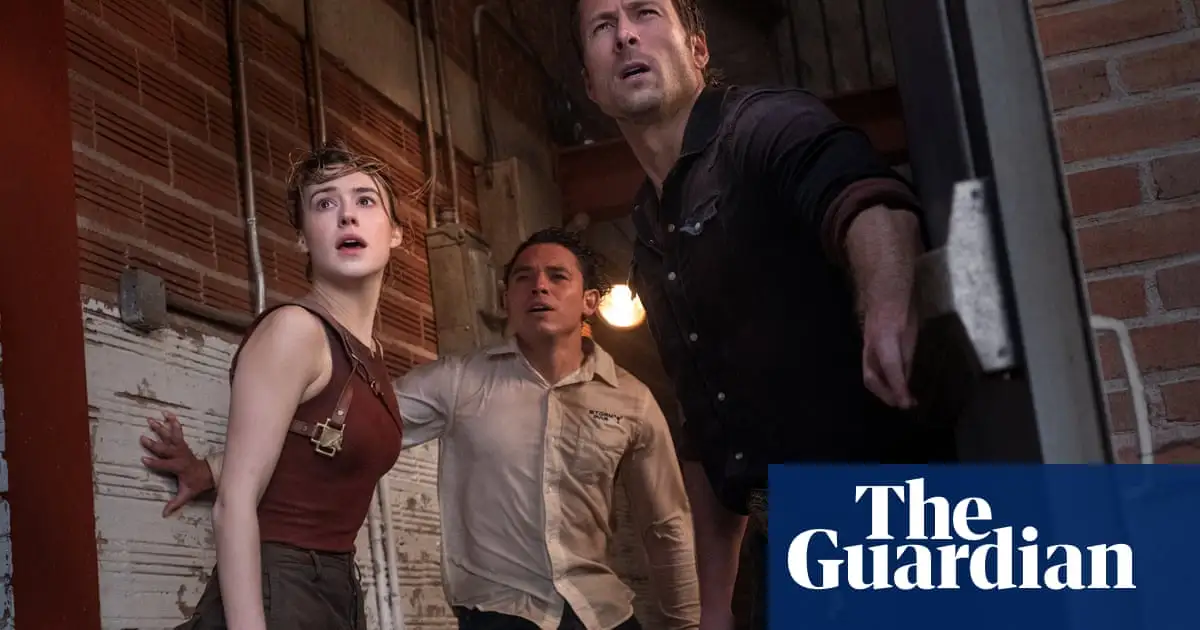- cross-posted to:
- climate@slrpnk.net
- cross-posted to:
- climate@slrpnk.net
A rodeo crowd waves cowboy hats as a man rides a bucking horse. Then comes a shower of leaves, a chorus of mobile phone rings and a wail of klaxons. Horses run wild and cars collide. One vehicle is whipped into the air by what a weatherman calls a once-in-a-generation tornado outbreak.
This is a scene from Twisters, starring Glen Powell and Daisy Edgar-Jones, in which rivals come together to try to predict and possibly tame ferocious storms in central Oklahoma. A sequel to the hit disaster movie Twister from 1996, it is a Hollywood summer blockbuster designed to entertain – but also a lost opportunity to raise awareness of the climate crisis.
“I just wanted to make sure that with the movie, we don’t ever feel like [it] is putting forward any message,” director Lee Isaac Chung, who grew up in Oklahoma’s tornado belt, told CNN. “I just don’t feel like films are meant to be message-oriented.”
That may not come as a surprise to scientists and climate activists. Despite global heating’s existential threat to humanity, and despite Hollywood’s left-leaning tendencies, the subject rarely makes it to the big screen.
A study published by the nonprofit consultancy Good Energy and Colby College’s Buck Lab for Climate and Environment analysed whether the climate crisis was present in 250 of the top-grossing fictional films between 2013 and 2022. In only 32 of the films (12.8%) was it clear that climate change exists, and in only 24 of them (9.6%) was it clear that a character knows it.



This is the best summary I could come up with:
Starring Leonardo DiCaprio, Jennifer Lawrence, Meryl Streep and Cate Blanchett, the film memorably depicted TV hosts consumed by trivia rather than the extinction event – a stark warning about humanity’s ongoing insouciance as the planet burns.
Alice Hill, a senior fellow for energy and the environment at the Council on Foreign Relations thinktank in Washington, says: “Climate change affects everything so it’s a piece of any story that we tell, but it also can be anxiety-provoking and depressing for people.
Twenty years after its release, Roland Emmerich’s summer blockbuster The Day After Tomorrow, starring Dennis Quaid and Jake Gyllenhaal, still stands alone as a classic disaster movie that explicitly attributes its litany of death and destruction to the greenhouse effect.
David Lipsky, author of The Parrot and the Igloo: Climate and the Science of Denial, says by phone from New York: “At the time, it was seen as ridiculous and the kind of mistake Hollywood makes that actually turns the audience off of this as a serious issue.
Joshua Glick, visiting associate professor of film and electronic arts at Bard College in Annandale-on-Hudson, New York, says: “There has always been an affinity between the blockbuster as mode or practice of film-making and natural disaster plots.
“Individual episodes within ongoing series, movies, books, short videos – there’s just so much opportunity to tell compelling stories that people can see themselves in, that they can relate to and identify with, not just in terms of being put at risk from the harms of climate change but also that they can see themselves and what solutions look like.”
The original article contains 1,780 words, the summary contains 265 words. Saved 85%. I’m a bot and I’m open source!